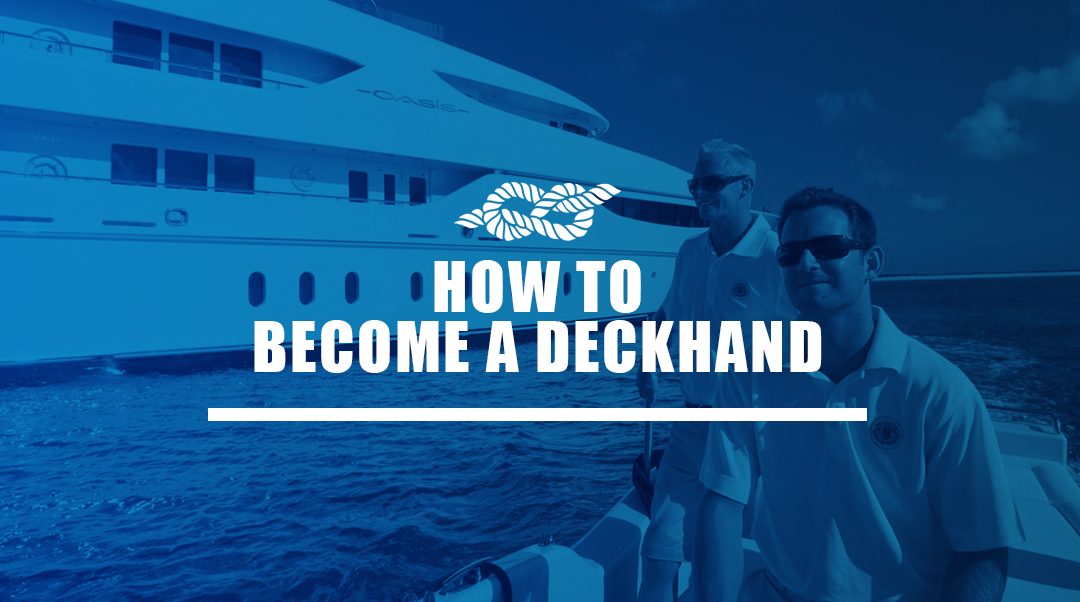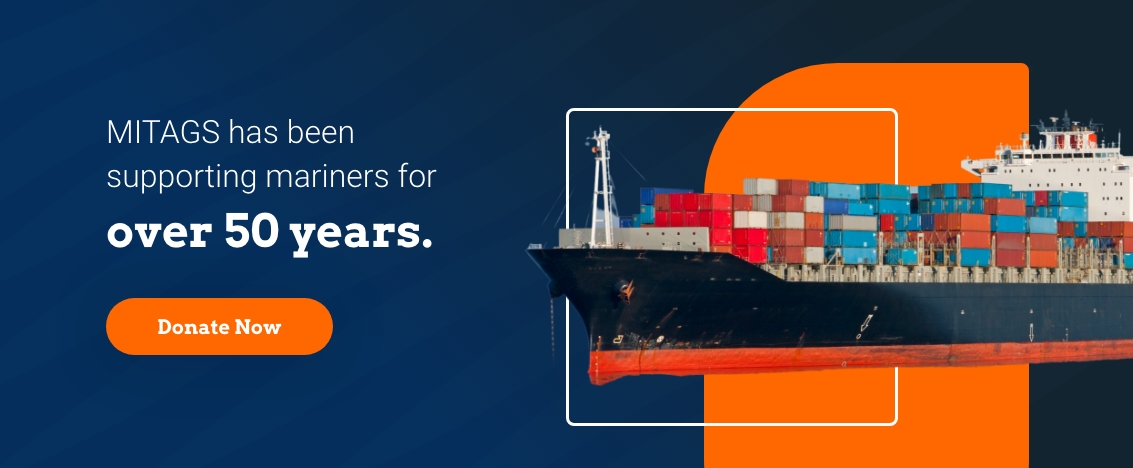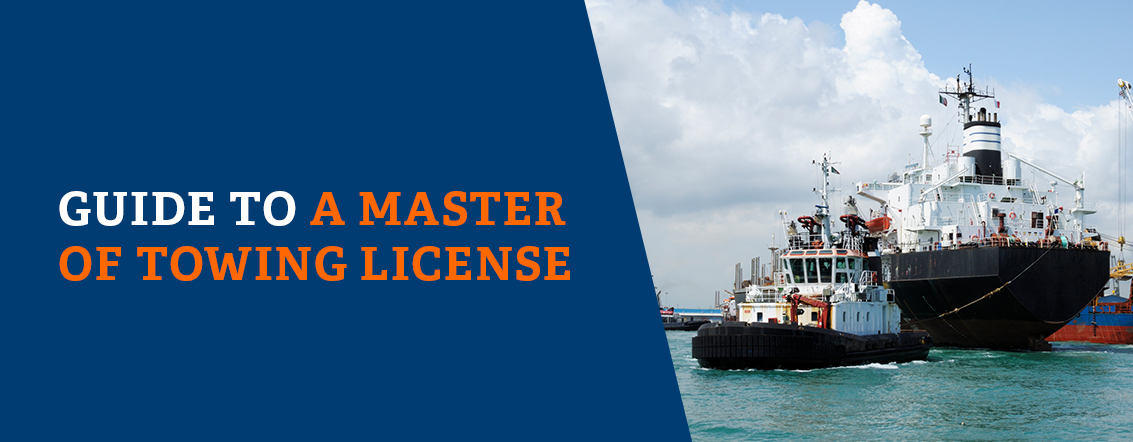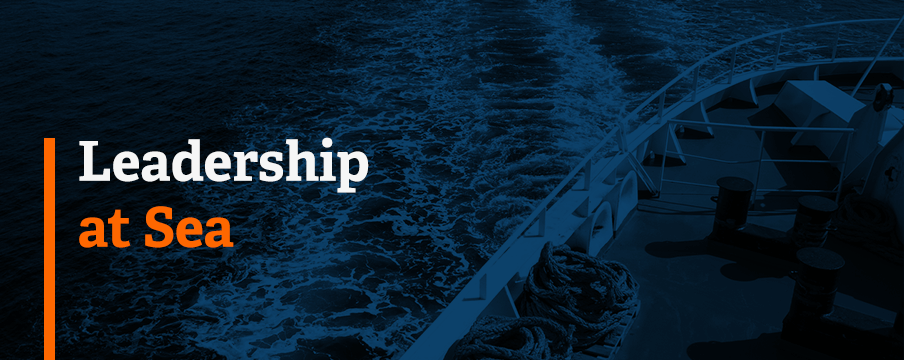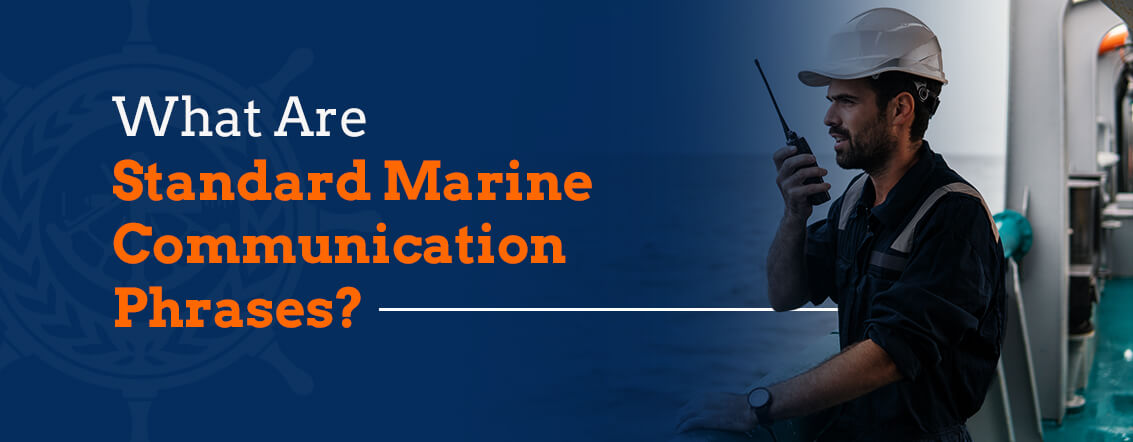Are you interested in working on inland boats or large ocean-going ships but don’t know how to begin?
Is there a way to get started in this career with no experience?
The answer is you can — by applying for entry-level Deckhand positions or by attending a maritime training school, such as the Maritime Institute of Technology and Graduate Studies (MITAGS).
The federal government predicts the demand for water transportation workers will grow over the coming years. The maritime industry offers unique and exciting opportunities and if you’re interested in working on the water, becoming a Deckhand is a good place to start. In this quick guide, we take you through:
There are several tasks that Deckhands must perform depending on the type of vessel.
Throughout this article, we’ll cover everything you’ll want to know about:
- How to Get a Job as a Deckhand on a Boat or Large Ship
- Merchant Mariner Positions and Duties
- Types of Jobs You Can Have as a Deckhand
- Average Salary of a Deckhand
- Benefits and Disadvantages of Being a Deckhand
- Working Conditions for a Deckhand
- Certifications Deckhands Need to Advance Their Careers
- MITAGS for Maritime Training
How to Get a Job as a Deckhand on a Boat or Large Ship
If you’re looking to become a Deckhand on a boat or large ship, there are a few ways you can break into the industry. But first, you might want to take time to learn about what it’s like to be a Deckhand and what your options are for entering this career. Explore the steps you might take to become a Deckhand:
1. Understand the Structure of the Deck
A deckhand is a junior crew member on a boat or large ship. Being aware of your surroundings is crucial, as you work with lines and other equipment, being a part of the team that brings the ship alongside dock, or that maintains sea safety and lifesaving equipment. An essential Deckhand requirement is understanding the structure and hierarchy. The typical chain of command being:
- Master or Captain
- Deck Officers
- Mates (3rd, 2nd, Chief Mate)
- Able Seamen
- Ordinary Seamen
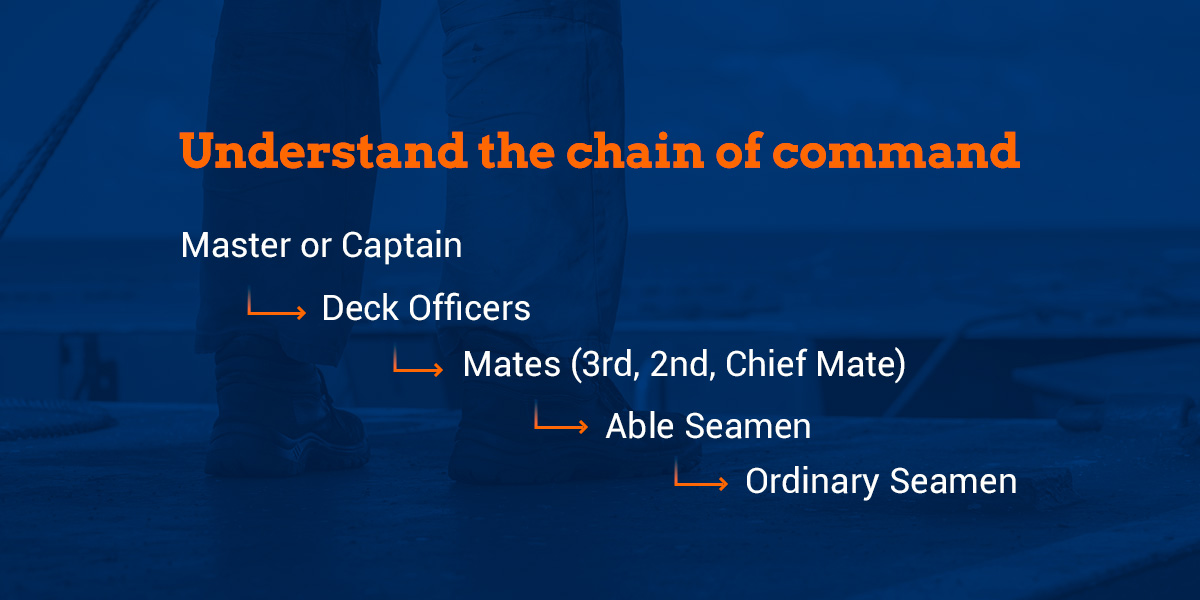
You can learn more about these specific duties below. However, they may differ depending on the services the ship provides, such as if it’s a fishing vessel or container ship.
Overall, hierarchy is crucial on a ship, as following orders is often essential for the entire crew’s safety. If you plan to work on a boat or large ship, you must be able to take orders. However, as you gain experience and knowledge, your seniority on board will allow you to progress in rank and position. This career path therefore requires individuals who are dedicated and hardworking while still being flexible and adaptable to the ever-changing environment.
Questions? Contact a School Advisor
2. Enroll in a Maritime Training Program
In a maritime training program, you will learn the skills, knowledge and safety practices needed to start a career in a boat or on a large merchant ship, taking the key courses that provide you the qualifications required to advance.
Maritime training programs help you fast-track your career and allow you to climb the professional ladder more quickly, eventually becoming a Deck Officer, Engineer or Captain.
There are several different career paths open to you if you want to work aboard large ships, and there are specialized education paths to help you reach each of them. To learn more about these possible paths to your future in the maritime industry, contact a MITAGS advisor today.
3. Apply for Entry-Level Positions
Many people start out in the maritime industry by applying for jobs as Deckhands. These jobs are usually aboard tugboats and other types of vessels that do their work on inland waters and not on the open ocean.
What if you are not sure if you want a career in the maritime industry?
A job as an entry-level Deckhand is a great way to explore what it’s like to work in the maritime industry. Then, if you want to go further, you can use your experience to earn qualifications that will advance your career and help you to earn more pay.
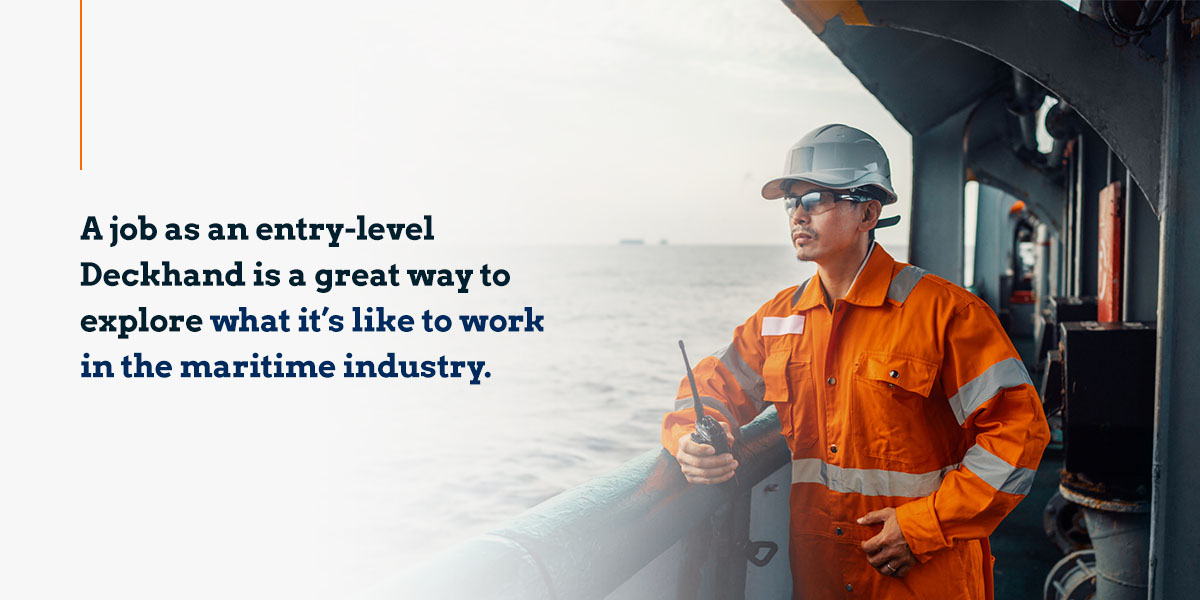
What if you know for sure that you want a career in the maritime industry?
If you know that a career on the water is right for you, you may choose to work your way up on small vessels on inland waters, or you may choose to work aboard large ships that sail out on the open ocean, with the associated opportunities to visit new places and see different cultures.
For a career offering a huge amount of job variety, there’s no better way than enrolling in a formal maritime training program. An advisor at Maritime Institute of Technology and Graduate Studies (MITAGS) schools in Baltimore or Seattle can help. Contact an advisor today.
4. Look for Opportunities to Hone Your Skills
In addition to training opportunities from MITAGS, you can hone your skills by seeking out informal mentorships and relationships with current Deckhands. They’ll be able to advise you on the skills you need and help you discover ways to improve your training.
Showing you work well with others and are committed to overcoming challenges can go a long way toward advancements.
If you want to advance as a Deckhand, it’s important to take every opportunity to grow and build, experience, knowledge and connections. Connecting with others through networking can also help get you on the fast track for advancements and promotions.
Merchant Mariner Positions and Duties
But what do Deckhands do?
Deckhands and the other crew members must perform a variety of tasks to operate their vessels. Depending on the type of vessel, the vessel’s cargo and the areas in which the vessel operates, the tasks can vary widely.
In general, Deckhands maintain the vessel and its mechanical equipment. To do this, they must have a basic understanding of vessel operations, machinery and deck maintenance, and know best practices to protect passengers, cargo and the environment.
Let’s take a look at the different duties Deckhands may be required to perform.
Deckhand Duties, Job Description and Positions
Deckhands work under the supervision of the vessel’s Deck Officers to:
- Stand watches underway and in port.
- Operate and maintain equipment and machinery.
- Maintain the vessel’s deck surfaces and interior spaces.
- Assist in operations like docking and undocking.
- Secure cargo and rig towing gear.
- Assist Deck Officers.
- Help ensure the safety of passengers and other crew members.
The lowest level of certified Deckhand on large ships is called an Ordinary Seaman, or OS.
As you gain experience as a Deckhand, you may want to earn certifications by attending a training school so that you can work your way into positions of greater responsibility and more pay. The first of these you may strive for is an Able Seaman.
Able Seaman Duties and Positions
Able Seamen (AB) are other workers in the deck department. To become an AB, you’ll need between six months and three years of experience at sea on a merchant ship in addition to other specialized training. An AB’s general duties include launching lifesaving equipment and operating deck machinery and cargo gear.
There are two main positions for ABs:
- Watchstander: The watchstander acts as a lookout and helmsman and is responsible for maintaining a steady course. Watchstanders might also act as security when the ship is not underway.
- Dayworker: A dayworker performs maintenance on the deck’s metal structures, lifeboats and emergency gear.
Marine Engineer Duties and Positions
After you gain some experience as a Deckhand, another path you may choose to pursue is becoming a Marine Engineer. If you love practical work with engines and mechanical systems, this could be an excellent opportunity.
Marine Engineers are responsible for maintaining a vessel’s main propulsion engines, electrical systems and other machinery. Small vessels may have one or even no engineer, but large ships will have several. Like the deck department, the engineering department of a ship has a hierarchy, with a Chief Engineer, First Assistant Engineer, Second Assistant Engineer and Third Assistant Engineer.
Marine Engineers will:
- Maintain propulsion, electrical, refrigeration and ventilation systems.
- Operate and troubleshoot the ship’s machinery.
- Ensure proper maintenance of the vessel’s systems.
- Monitor the performance of the vessel’s machinery.
- Manage any crew that make up the Engine Department.
Types of Jobs You Can Have as a Deckhand
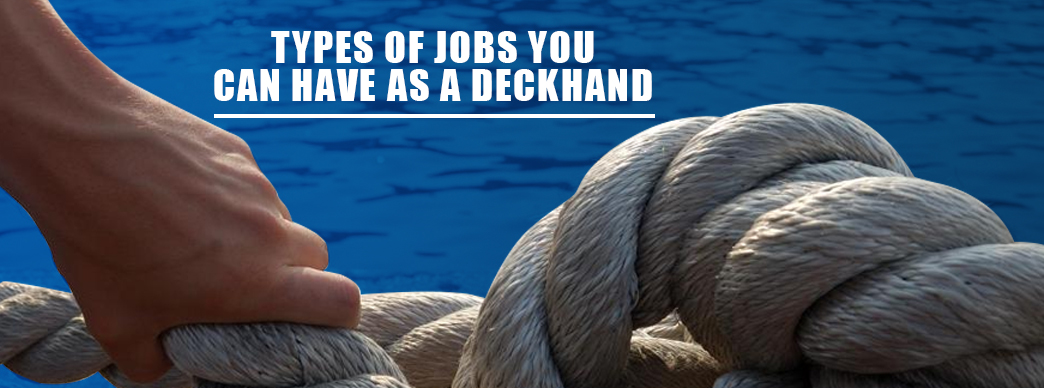
The different types of vessels you can work aboard as a Deckhand fall into two broad categories — inland and near coastal vessels or ocean-going vessels. The right job for you will depend on your preference. It’s best to explore the different types of vessels and the work they do. Consider the following questions:
- Would you like to work with passengers?
- Are you interested in working in some specific area of the country or taking a vessel that is going overseas?
- Are you interested in working on vessels that service oil rigs or wind farms?
- Would you enjoy moving from one type of vessel to another?
1. Inland and Near Coastal Vessels
If you want to work in the maritime industry but don’t like the idea of being away from home, working aboard an inland or near coastal vessel might be best for you. Near coastal vessels venture up to 200 miles from the coast, and inland vessels primarily stick to coastal waterways, rivers, bays and lakes.
There are several types of inland and near coastal vessels with Deckhand jobs. Here are some popular ones:
- Ferries: You can work as a Deckhand collecting money from passengers and transporting them and their cars across waterways.
- Ocean-going support vessels: You can work as a Deckhand on these vessels that carry supplies, crew, machinery and other equipment to oil rigs.
- Tour boats: If your harbor or lake has an interesting background or sights that draw tourists, you may be able to work aboard a tour boat to gain your first boating experience.
- Service vessels: You may be able to get a job aboard a vessel that offers a cleaning service, pump-out service or delivers fuel to larger vessels.
- Sport fishing boats: If you love to fish and want to help other enthusiasts with their angling adventures, working on a fishing boat may be an exciting path for you.
- Barges: There are several different barge operations and jobs for the Deckhands who work aboard them. Barges can be used for dredging, salvage and transporting marine machinery and construction equipment.
- Tugboats: Becoming a tugboat Deckhand is no small task. Those who commit to this industry must undergo years of training to understand the skilled and complex functions of these important vessels. However, tugboat crew members and captains are known to make handsome salaries once they put in their time in the sector.
Inland and near coastal maritime careers can offer good salaries.
2. Ocean-Going Vessels
If you like the idea of traveling long distances and seeing the world on a ship, then ocean-going vessels might be for you. Ocean-going vessels go on voyages that last weeks or months. This career offers an alternative schedule to the traditional nine-to-five, good pay and the opportunity to travel and work on the water — just a few of the reasons people love working aboard large ocean-going vessels.
These are a few of the most popular kinds of ocean-going ships you can work aboard:
- Cargo ship: Perhaps the most common option for ocean-going vessels, cargo ships transport goods across the world. These vessels have several crew members that live aboard the ship for months at a time while they work and earn their salaries and vacations.
- Research vessel: These vessels lead expeditions across the world’s oceans to advance science and gain knowledge. You may travel to remote locations and help your team with interesting and vital oceanographic research.
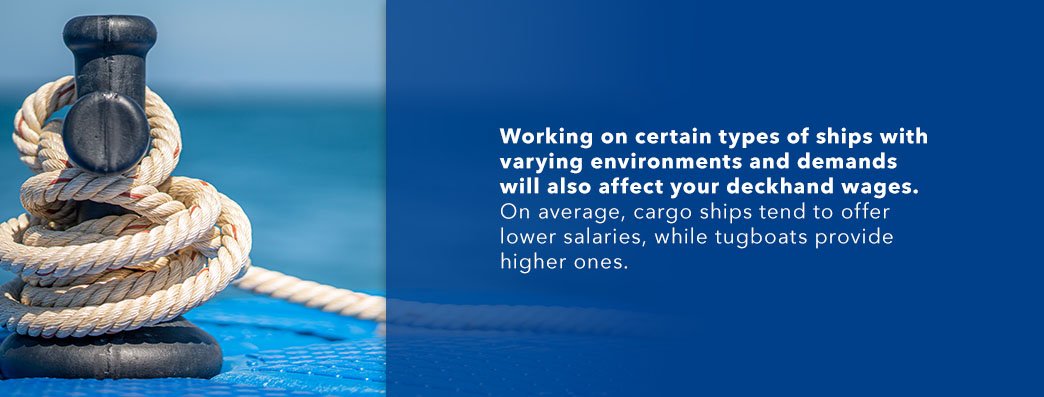
Average Salary of a Deckhand
Deckhand salaries can vary widely, but the average annual salary for a Deckhand falls between $24,000 and $54,000 a year. Entry-level Deckhand jobs are at the lower end of the pay scale.
However, if you go through maritime training programs, achieve certain qualifications and become a Deckhand on a large ship or specialized vessel like a tugboat, your salary can be significantly higher. You will also have the opportunity to work your way up the ranks more quickly toward significant pay increases.
Working on certain types of ships with varying environments and demands will also affect your Deckhand wages. On average, cargo ships tend to offer lower salaries, while tugboats provide higher ones. Here are the typical salaries for Deckhand jobs on different ship types:
- Cargo ship: The average salary for Deckhands working on a cargo ship falls just below $42,000, or $20 an hour.
- Barge: Deckhands for a barge might earn a little over $45,000 on average, or $22 an hour.
- Tugboat: Working on a tugboat, a Deckhand might earn a little more than $57,000 a year. Tugboats have the broadest range of earning potential for Deckhands because of the specialized training needed.
A great way to improve your chances of a higher salary is to gain certifications. If you jump right into an entry-level position working on an inland vessel, you may not need any extra training. Taking classes can improve your skillset and qualify you to work on different types of vessels, like large merchant and container ships. These ships often come with more career opportunities, but even if you stay inland, certifications can add to your skill set.
A Standards of Training, Certification and Watchkeeping (STCW) certification is necessary for Deckhands who want to work on any ocean-going ship. It must be renewed every 5 years. The courses cover the basics of deck work, like laws, regulations and safety. The certification is recognized internationally and creates the foundation for further maritime training. Other topics covered include basic firefighting, survival techniques, social responsibility and first aid.
STCW is necessary for many Deckhands, but you can also give yourself an edge by gaining professional experience at sea. You can build up your skills in the deck department, which will help prepare you for advancement and formal training. After working as a Deckhand, you can work your way up and gain the training and certification to become an AB, Mate, Engineer or Captain, which offer significantly higher average salaries.
Benefits and Disadvantages of Being a Deckhand
Just like any traditional job, working at sea comes with its own drawbacks. Here are a few:
- Being away from home: Long periods away from home on larger vessels isn’t for everyone.
- Manual labor: Being a Deckhand means getting your hands dirty. You have to do the ‘nitty gritty’ work aboard your vessel. However, once you work your way up to become an officer, you’ll do less and less of that kind of work and focus more on supervising operations and managing the crew.
- Extended hours: With an alternative schedule, it can sometimes mean you’ll have to work long hours. You will also be working outside, sometimes in extreme weather. So, you will need the right gear to be comfortable under any conditions.
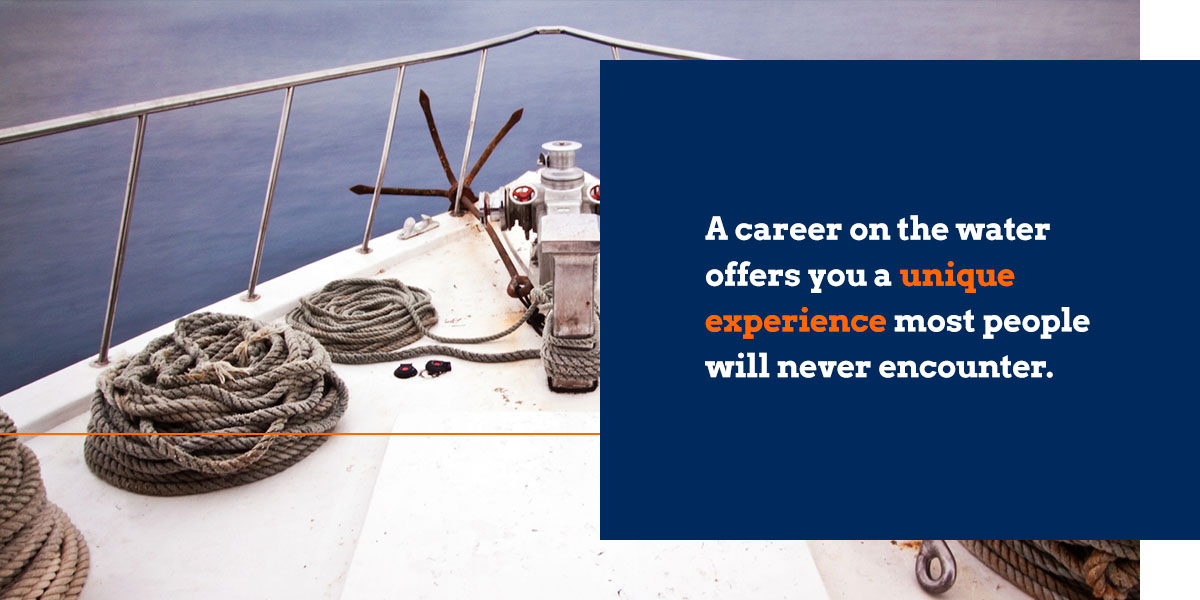
If you feel you can overcome these drawbacks, then a career in the maritime industry might be for you. Here are a few reasons why people love maritime careers:
- Being on the water: Not many jobs have a better setting. When you work as a Deckhand, you get to be outside and work where many people hope to go on the weekend. A career on the water offers you a unique experience most people will never encounter.
- Alternative schedule: Many people are trying to figure out a way to avoid a nine-to-five schedule and find a career that lets them work non-traditional hours. Many maritime career paths offer unique work schedules, and crew members sometimes get entire months or seasons off work.
- The potential for good pay: While the pay ranges greatly depending on the sector of the maritime industry, many vessels offer Deckhands and officers good pay.
- Respect: Working aboard a large vessel and working your way up the ranks is recognized internationally as a respectful and interesting career path. You learn valuable leadership and practical skills that can be applied to other areas of your life.
- Career mobility: Starting as a Deckhand opens the door for you to move up the ranks, no matter where you start. You start earning sea time experience and can achieve the level of Officer, Engineer or Captain with training and dedication.
Working Conditions for a Deckhand
Depending on the function of the vessel, your working conditions on board might vary. However, you will be on the water for long hours as the position requires and experience various weather conditions. Cabins may be cramped, and you will likely experience long days with little sleep.
Certifications Deckhands Need to Advance Their Careers
You can obtain a few different certifications to advance your career as a Deckhand:
- STCW certifications: Standards of Training, Certification and Watchkeeping for Seafarers (STCW) includes the minimum international standards for professional mariner training. These courses include basic skills and other essential competencies like first aid and firefighting.
- Technical certifications: You can get specialized training on specific technical aspects of the maritime industry, such as tugboat and barge courses.
- Marine certifications: If you take advanced managerial courses, you can work your way up from Deckhand to Mate to Master.
Questions? Contact a School Advisor
MITAGS for Maritime Training
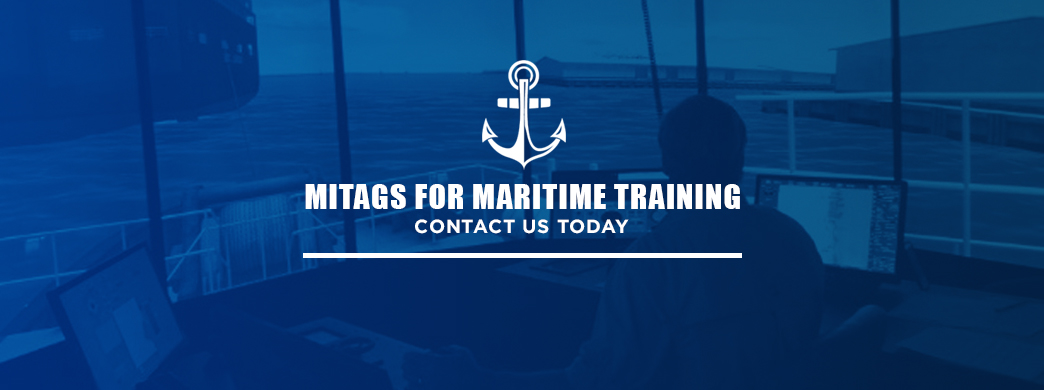
If a maritime career is for you, then MITAGS is a great place to start!
We can help you navigate your way toward becoming a Deckhand and help steer you throughout your career.
We offer an all-inclusive program that takes you from an inexperienced student to a professional mariner. Our program is a mixture of in-class course instruction and at-sea training that gives you real-world experience and readies you to become a Deck Officer or Engineer. There’s no better way to kick-start your maritime job training and prepare yourself for an exciting and rewarding career.
Check out our Maritime Apprenticeship Program, which instills the knowledge, skills and confidence to take on the duties and responsibilities of a Deck Officer. You should also check out our other guide about how to get a job on a ship. And if you have any other questions or would like more information about our courses, please contact us today.

